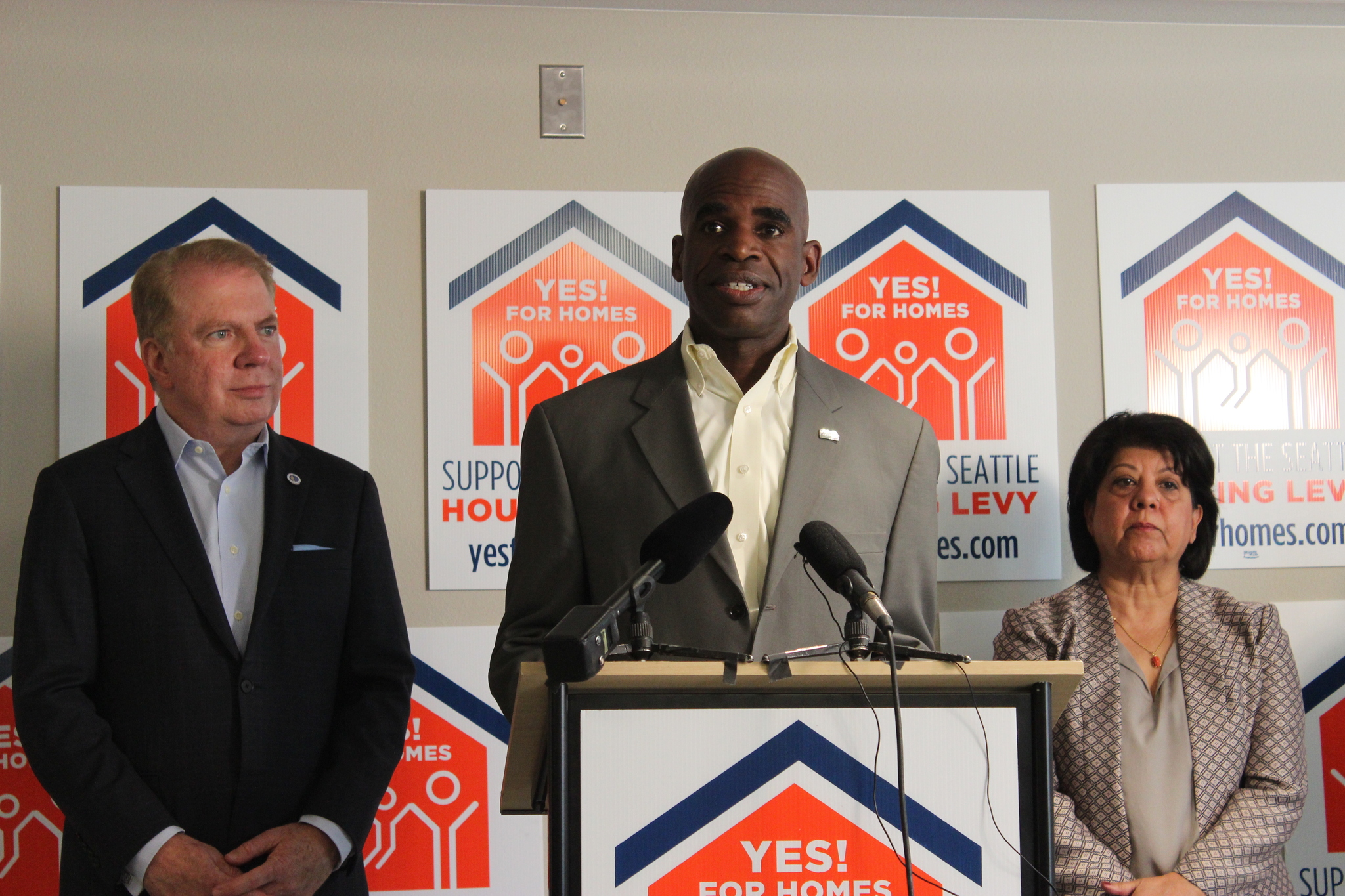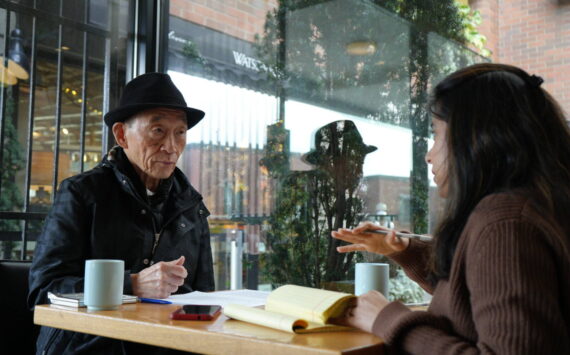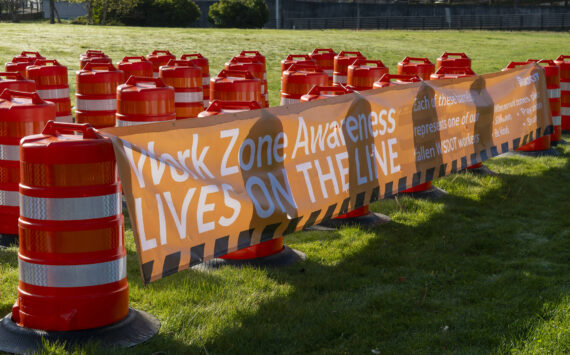Ballots mailed this week to voters across the state. If you live in Seattle, your ballot will include Proposition 1, the city-wide housing levy. Pretty much every elected official within spitting distance—the mayor, the city council, most of the county council, legislators galore—wants you to vote yes, as do homeless services and affordable housing providers.
Speaking at a press conference yesterday at Hirabayashi Place, a nonprofit development that rents apartments for between $500 and $1,000 a month to renters earning 40 to 60 percent of area median income (AMI), Mayor Ed Murray used a tried and true sales tactic while pitching the levy to reporters: dividing the price into monthly payments. “What will it cost the average owner of a house in Seattle?” he asked himself, before answering, “Well, the typical average home is $480,000 a year. That homeowner, like me, will pay $122 a year. That will be a five [dollars per month] increase for providing more housing, more rental assistance, so that more people do not fall into homelessness.”
The new, seven year levy is double the price of the prior housing levy, passed in 2009—an increase from $145 million to $290 million—as the mayor’s Housing Affordability and Livability Agenda (HALA) task force recommended last year. Since 1981, city voters have been approving funding in the form of one bond and four levies to fund the city’s affordable housing programs, according to the city’s Office of Housing website. But it’s possible that this will be the year that bucks that trend, with the Sound Transit 3 initiative just months away from asking voters inside and outside Seattle for more than $50 billion for transit.
Nine percent of the levy money will go to its administration, according to the city, while the bulk—more than $200,000 million—goes to “rental production and preservation” of 2,150 units for renters making no more than 60 percent AMI, and more than half to renters earning up to 30 percent. Seattle’s AMI was $89,600 last year, according to HUD. Another $42 million will go to maintenance and operations for 510 units affordable to renters making up to 30 percent AMI, and $20 million for two programs to help poor-ish homeowners and renters at risk of homelessness.
Murray says the levy’s existence and growth is a necessary reaction to cuts in federal funding for homelessness and housing starting in the Reagan era. Indeed, it’s a point he’s raised constantly when talking about Seattle homelessness, and one reason he gave for signing a declaration of civil emergency, which is still in effect, over homelessness last year. “In the 1980s, when the Reagan administration began to slash HUD and funding for housing and homelessness,” he said yesterday, “Seattle stepped up—first city in America to step up to an innovative approach with the housing levy.”
There is no opposition campaign against the levy. The opposition statement in your voter’s pamphlet was written by businessman and Wallyhood contributor Glenn Singer and “frustrated neighbor” Brianna McDonald. They argue that the city has wasted taxpayer money in the past and therefore shouldn’t be trusted with any more. “A ‘NO’ vote forces our City Leaders to create a NEW, realistic policy,” they write.
“City leadership promised a ‘Solution to Homelessness’ in the 2009 Housing Levy and yet, in January of 2016 there were more than 4,300 people sleeping outside and more than 8,000 individuals sleeping in shelters,” they argue.
Affordable housing and homeless service providers speak of the prospect of the levy failing in apocalyptic terms. “Don’t even go there,” said Marty Kooistra, director Housing Development Consortium, an association of nonprofit affordable housing developers and architects, when asked in a public meeting about the possibility of failure. (H/t to CHS.) Pradeepta Upadhyay is the executive director of InterIm Community Development Association (CDA), which runs Hirabayashi Place. Standing beside Murray yesterday, she called funding from the current housing levy “a key piece for financing and locating matching funds to build affordable homes, particularly for those below 60 percent of [AMI].”
If voters do reject the housing levy, funding for such affordable housing programs will fall off a cliff. There won’t be a chance to ensure that levy funds are spent efficiently, because there won’t be any more levy funds.
“We live in a world” where cities are constrained by regressive state tax policies, said Murray yesterday. “With the advent of basically revenue sources that cities used to have going away, you see levy after levy after levy.
“I recognize taxes are a burden. But I also recognize that folks like me who own property…our worth and our wealth has gone up because our property has gone up as well,” Murray said. “A city that is not affordable, a city does not have good transit, is not a city that people are going to want to live in.
“We as cities have a narrowing set of choices that we can choose,” he said.
This post has been edited to correct the cost of the rental production and preservation program.








